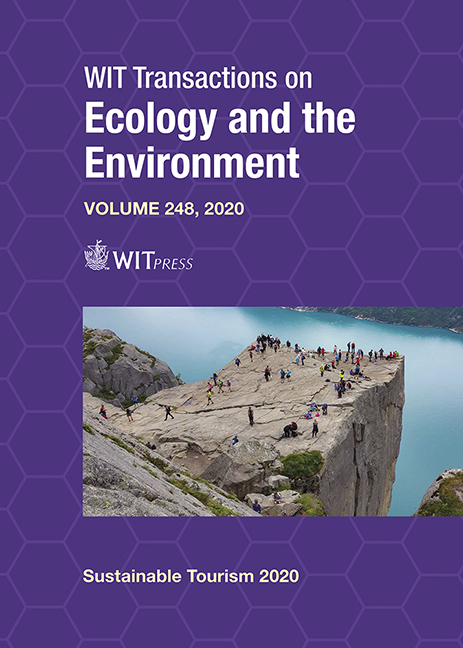REWILDING URBAN AREAS TO MAINTAIN ECOSYSTEM SERVICES AND ECOLOGICAL TOURISM: THE CASE OF SALER’S DEVESA, VALÈNCIA, SPAIN
Price
Free (open access)
Transaction
Volume
248
Pages
13
Page Range
177 - 189
Published
2020
Paper DOI
10.2495/ST200151
Copyright
WIT Press
Author(s)
JOSÉ LUIS MIRALLES I GARCIA, FELIPE MARTÍNEZ LLORENS
Abstract
The Saler’s Devesa is a case of a failed tourist project to urbanize a historical protected forest inside the metropolitan area of València in Spain. In the 1970s, the government started actions to urbanize this area. In fact, all the public works and some buildings were built. However, in the 1980s the new democratic government decided to rewild the area and “deconstruct” the urban development works that had already been built. The case allows knowing the process of rewilding and the difficulties to do it. On the other hand, currently in developed countries, metropolitan areas simultaneously present a stabilized population and a great surface extension. In this situation, the sustainability of these urban areas has focused on managing the city already consolidated by renovation or regeneration processes and rewilding open spaces, developing green infrastructures. Because of this, we focused our attention on researching one of the few cases that exists on rewilding urban areas. The green infrastructure concept has been used in the case of La Devesa to maintain and increase ecosystem services. In addition, these actions allow promotion of ecological tourism inside the area. The research question is “What should be the idea of society’s progress when touristic urban development growth is no longer possible or desirable?” The article analyses the historical process of rewilding and rethinking the idea of progress in the current situation.
Keywords
rewilding cities, green infrastructures, ecological tourism, rewilding cost, metropolitan areas





